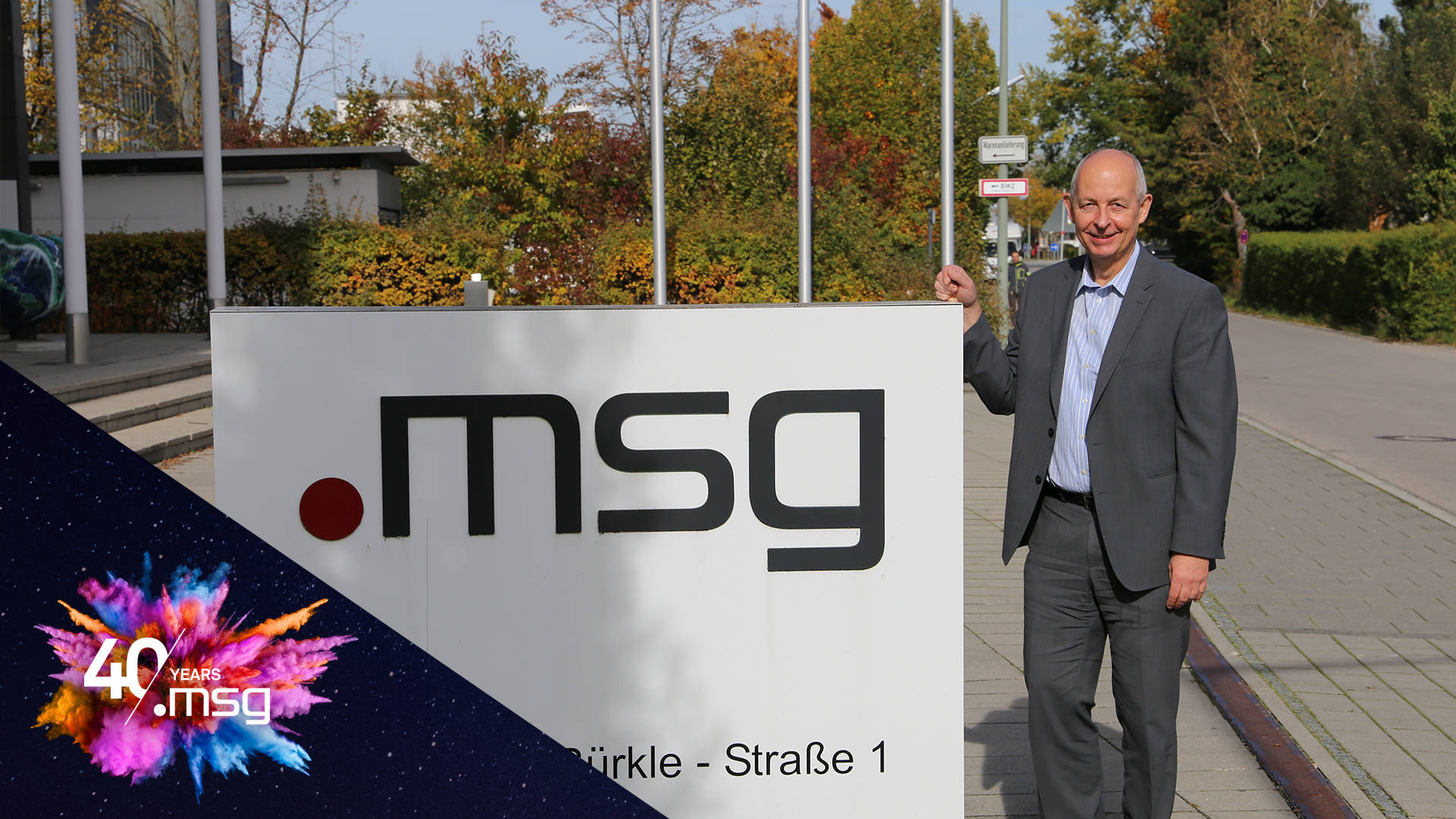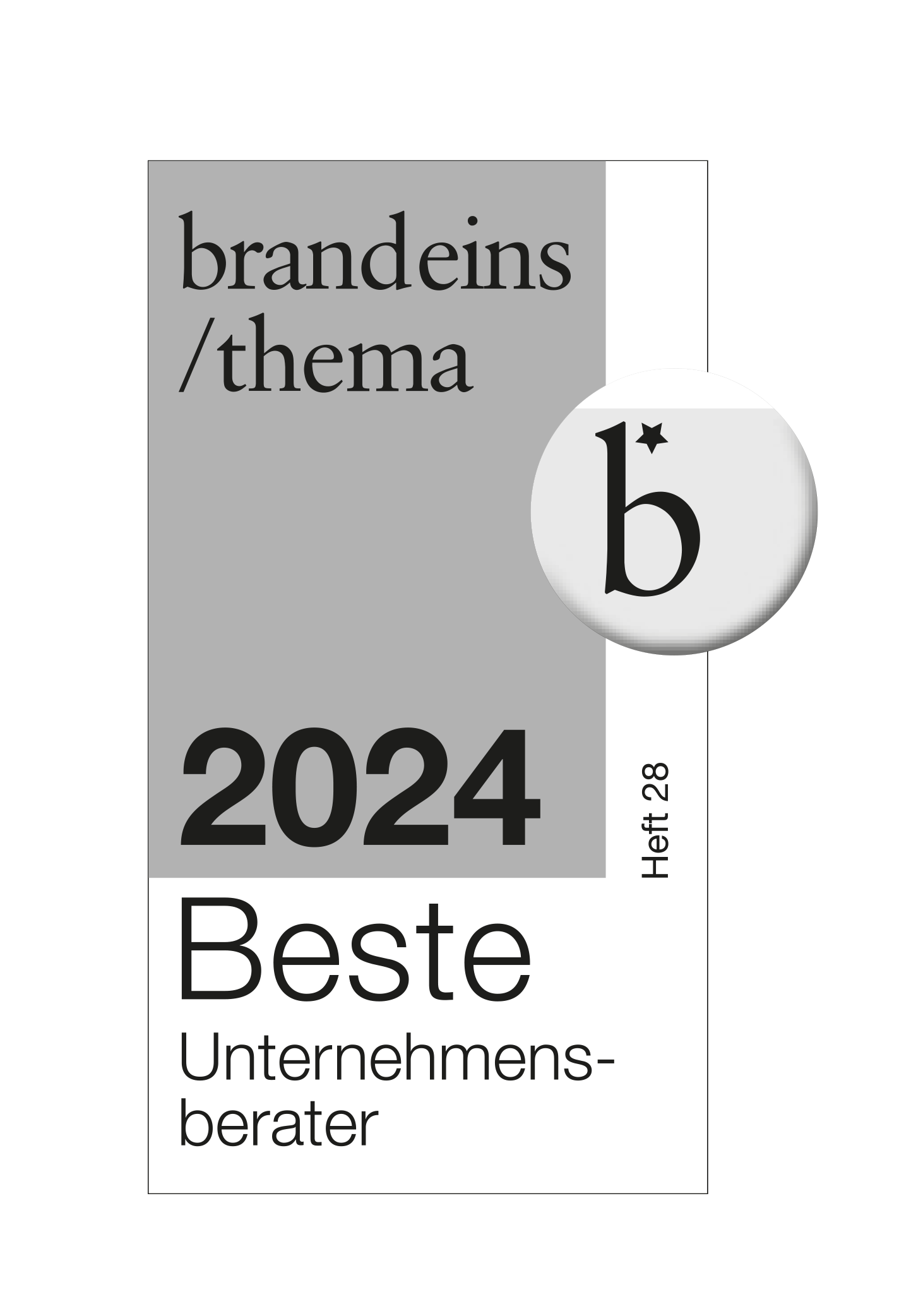27/11/2020
The fact that msg can celebrate its 40th anniversary this year is largely due to many committed and loyal employees, some of whom have been ensuring the continuous development of the company and its products since the 1980s. One of them is Ingo Goelitz, who has been loyal to msg since 1983 and who has helped shape the company. In this interview, Ingo talks about the best decision of his working life and his dearest memory - meeting the woman who is now his wife.
Mr. Goelitz, what do you remember about your application process?
(laughs). That was in fall 1983. There wasn’t a standard application process at that time. I'd studied information technology at the Munich University of Applied Sciences and computer scientists were very much in demand - at least as much as today. I didn’t have to apply actively for a job. It was the other way round. I was actually handed six job openings where I could start working. One of them was msg.
Why msg?
Like many of my colleagues of about the same age, I was doing an internship at IBM. In this context, I met Hans Zehetmaier and then also Pius Pflügler and Herbert Enzbrenner. We first talked to each other in what was then the IBM office at the Munich Eisbach. Before that, I had already asked around to see what people working at IBM recommended. Often, I was advised to start working at a small company, which is rather incomprehensible from today's perspective, but I thought otherwise. After all, we are now well over 8,000 employees. Nevertheless, I definitively didn’t want to work for a large company because I have no interest in hierarchies. For me, the chemistry just had to be right. It was a mixture of several factors - but ultimately it was a gut feeling.

Looking back, how was your first working day?
I went directly to BMW, the first major msg customer. I had already gained some experience, but of course it's a different matter when you're “sold” externally, and have to act as a consultant. It was exciting, anyway. Especially since - as I can admit today - I had very little knowledge about the automotive industry, apart from having a driving license (laughs). It was quite stressful until I established myself.
What were the next steps?
My future path within msg was anything but predetermined. Back then, a career wasn’t set out in a job model. Things simply developed. I’ve done several things over the years: From application programmer to design, subproject management to drawing up offers and training employees. Besides, we jumped at every opportunity that arose.
For example?
At one stage, we met some people from Control Data, an institute that offered IT trainings and we thought about who could offer which course there. It turned out that we actually knew everything, but when all was said and done, we had no clue about the details (laughs). And so we were virtually unleashed on humanity. And actually I learned an incredible amount during the preparation of these courses, because I was forced to have answers to all kinds of questions. We then coined this into a saying: “If you want to learn something, you have to train others in it.” We did this while working our normal jobs. We had only heard about fixed working hours anyway and were sometimes working two jobs at the same time. Working until 10 p.m. was nothing unusual and we never thought of this as a burden. On the contrary. It was a chance to broaden our business and technical horizons. And, to be honest, it was a way to make money.
Which of your career-related decisions has been spot on?
One afternoon I ran into Hans Zehetmaier in the office. He asked me whether I wanted to make an excursion into the insurance industry. There would be an exciting project in store. After ten years in the automotive industry, I said yes without thinking. Not knowing what to expect. This way, I joined a large project at the Versicherungskammer Bayern (Bavarian public-law insurance group). Again, the initial period was relatively hard because I had no idea about insurance, but I simply did what I was supposed to do. You can actually achieve a lot simply by being optimistic. You just have to keep your nerves, keep going and hold on and things will work out. At least, that’s my experience.
Why was this decision so important to you?
This way, I was able discover projects with other dimensions. At insurance companies, the in-house IT team tends not to be on the large side, but their projects are. They have their own approaches and own rules. That was something spectacular that not everyone gets to experience. Somehow, everything came together and because msg has grown so much, new opportunities have arisen again and again. You only have to find the job that suits you. For example, I am now working in a role in which I can show my hidden talents.
Such as?
I love figures. Everything needs its order, everything requires its own classification. That's why I'm now working more in the commercial sector. In conventional companies I would probably have had to change jobs a few times to get where I am today. But luckily, this wasn't the case for me. You have to appreciate that the management board had and continuous to have this trust in its employees. I do. Of course, it was only possible because we experienced this rapid growth. The laws of the market do not bypass msg either, but msg has always succeeded in reinventing itself and adapting to ensure survival on the market. This is by no means a matter of course when you look at the competition. Or start-ups, which launch incredibly dynamically but cannot keep up the pace.
Which is your dearest memory?
This question requires me to get a little bit personal (laughs). I met a woman at msg and we got married. It was a huge story, a great wedding attended by many colleagues. In a way, my private and professional lives have become very intertwined. And of course, my wife is also one of the reasons why I was able to do everything the way I did. She knew what msg was like and understood that I wasn't doing a classic nine-to-five job.
In which way has your job changed?
Everything has changed and evolved, that’s how things are. Consultants can only acquire new businesses this way. Today, the term digitization is ubiquitous. We’ve been digitizing for 40 years - but today, we have other options. In the past, bandwidth alone was lacking for many projects. On the other hand, customers are becoming more demanding and more confident. In some cases, the price war has almost reached the limits of what is feasible. Luckily this is not yet as extreme in the insurance sector as it is in the automotive sector, for example. Of course, msg is also profit-oriented, but not for satisfied shareholders. This is one of the reasons why I still feel good after 37 years.
We talked a lot about the past. Which project will drive you in the future?
The greatest challenge is to support Roadmap 2025 - the strategy for the consistent further development of msg - within the insurance industry. Professionally, I am heading towards retirement. That's why this will be a central topic for me. I’m looking forward to giving support to this process.



